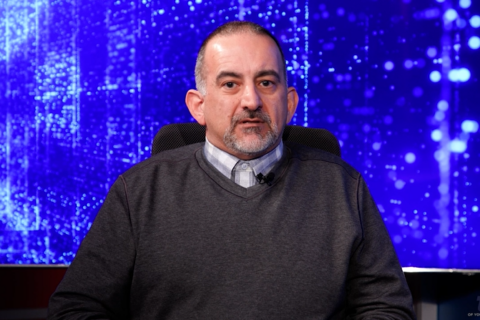This content is provided by Clark A. Kendall of Kendall Capital in Rockville, MD.
The year of 2020 will go down in history as one of the most trying periods of time for scores of Americans who lost their jobs or lost family members to the coronavirus.
With the pandemic ravaging families, individuals, paychecks and the entire U.S. economy, the gap between the “haves” and “have-nots” has been growing wider.
“No other recession in modern history has so pummeled society’s most vulnerable,” the Washington Post reported, as it investigated job loss data from the U.S. Labor Department and found that the economic collapse caused by the pandemic has led to the “most unequal recession in modern U.S. history.”
According to the Post, the recession created a mild setback for those at the top of the economy and a depression-like era for those at the bottom.
“White women, for example, have recovered 61 percent of the jobs they lost — the most of any demographic group — while Black women have recovered only 34 percent,” according to the Post.
Racial inequities such as those have been made even more evident through Black Lives Matter rallies and other social justice protests that have swept across communities nationwide, sometimes leading to violence in the streets and damage to local businesses.
“Multiple crises are all happening at once,” said Clark Kendall, President and CEO Kendall Capital, an investment management firm in Montgomery County, Maryland.
Additionally, experts say the economic recovery from the pandemic may be more of a “K” shape than a “V” shape.
While a “V” recovery would lift most of the country back up, a “K” recovery would mirror the shape of that letter with one side of the economy heading upward and the other downward.
Stocks rebounded following a huge selloff earlier this year, but most Americans didn’t feel that boost.
“As of the first quarter of 2020, the wealthiest 10% of American households owned 87% of all stocks and mutual funds, CNN reported.
So, what is the best way to help those in need right now?
Research from Indiana University found that 56% of U.S. households participated in charitable giving during the first half of 2020, with one-third of households giving money directly to charitable organizations, individuals or businesses.
Writing a check is usually the most popular thing to do, but according to Kendall, “a check is not the most efficient way to maximize your gift.”
One innovative alternative Kendall recommended was to set up a donor-advised fund (DAF) which allows donors to create an account and contribute cash, securities or appreciated assets.
Donors receive an immediate tax deduction and can arrange for grants to be distributed through the fund over time.
“Donors can contribute to the fund as frequently as they like and then recommend grants to their favorite charities whenever makes sense for them,” according to the independent public charity National Philanthropic Trust.
DAFs can be set up and managed through trusted organizations such as the Greater Washington Community Foundation and Schwab Charitable.
“Those groups do a great job of helping clients give appreciated securities and connecting them with charitable organizations,” Kendall said.
Another unique option for people seeking to donate money involves a qualified charitable distribution (QCD), which is a withdrawal from an individual retirement arrangement (IRA) that’s made directly to an eligible charity.
“People could be giving up to $100,000 a year from a retirement account,” said Kendall.
Donors who give money through QCDs can also save tax dollars in several ways.
The strategy is especially helpful for individuals who are over 70½ years of age and forced to take taxable required minimum distributions (RMDs) from their IRAs. QCDs aren’t considered taxable income, so no taxes are due on the distributions.
“I share with clients of our firm and the giver community that DAFs and QCDs are wonderful tools to stretch your giving dollars to allow you to have a greater impact in our community and for the benefit of the charities that are in need and you care about most,” said Kendall.
But money isn’t everything.
Kendall said, during the pandemic, it is hugely beneficial for people to simply donate their time and talent to organizations that work directly with members of the community who need some assistance.
Organizations that provide those services include the Boy Scouts of America and, in particular, Big Brothers Big Sisters which has the largest donor and volunteer supported mentoring network in the Washington, D.C. region.
“Many people are Monday morning armchair quarterbacks telling others what should or shouldn’t be done to solve the world’s problems,” said Kendall. “The people I admire most are those who are givers of their time, talent and resources to make the world a better place for others.”







